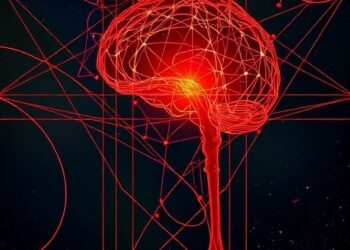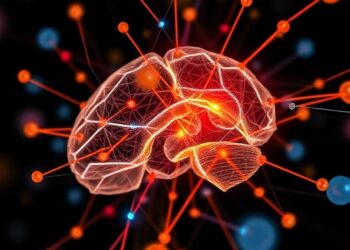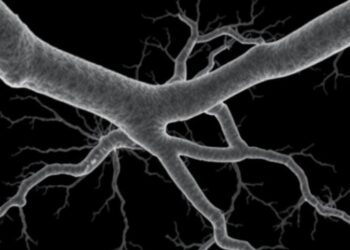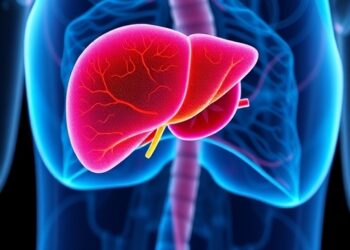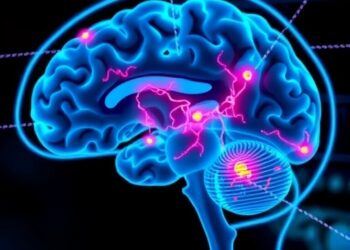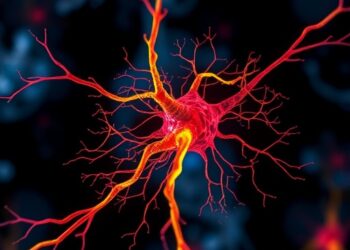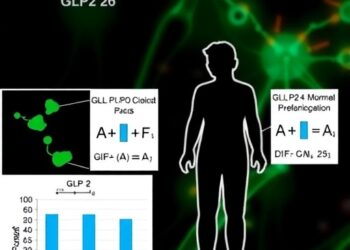Science News
Seed-Borne Bacteria Shape Wheat Root Microbiomes
In the quest to unlock new dimensions of agricultural microbiology, a groundbreaking study recently published in Nature Microbiology reveals the...
Pt(IV)-Coordinated Carbon Dots Trigger NIR-Induced Pyroptosis
In the rapidly evolving field of nanomedicine, a groundbreaking advancement has emerged from the collaborative research led by Guo, Hou,...
Prospective Contingency Shapes Behavior and Dopamine Signals
In the intricate realm of associative learning, the principle of contingency—the predictive relationship between a stimulus and an outcome—has long...
Creating Strained, Stable Boracycles Using Boron Diradicals
In the realm of synthetic chemistry, the exploration of boron-containing cyclic compounds has gained significant momentum due to their compelling...
Nanodiamond Quantum Receivers Enable Ubiquitous Radio Access
In a groundbreaking leap toward the future of wireless communications, scientists have unveiled a novel approach to achieving ubiquitous radio...
Adaptive Social and Asocial Learning in Collective Foraging
In a groundbreaking study published in Nature Communications, researchers Wu, Deffner, Kahl, and their colleagues have unveiled pioneering insights into...
AI-Powered 3D Reconstruction Enhances Lung Surgery Planning
In a groundbreaking advancement set to transform thoracic surgery, researchers have harnessed the power of artificial intelligence to create unparalleled...
Novel Intranasal Vaccine Technology Using Albumin Promises Enhanced Mucosal and Systemic Immunity Against Respiratory Viruses
Vaccines are undoubtedly one of the greatest advancements in public health, saving millions of lives annually by providing immunity against...
Physiology-Inspired Networks Poised to Transform Political Decision-Making, New Study Finds
In a striking confluence of biology and political science, researchers at Columbia University have unveiled a novel framework for enhancing...
Ultra Micro-Angiography Biomarkers Detect PTC Atypia
In a groundbreaking development that could revolutionize thyroid cancer diagnostics, researchers have unveiled a novel approach leveraging ultra Micro-angiography (UMA)...
Nanofluidic Patch Enables Battery-Free Organ Delivery
In a groundbreaking advancement poised to reshape the landscape of therapeutic delivery, researchers have unveiled a novel, battery-free nanofluidic intracellular...
Farmland Intensification May Harm Biodiversity More Than Expansion, New Study Finds
A groundbreaking new study led by researchers at University College London (UCL) dissects the long-standing debate surrounding agricultural expansion and...
Enhanced Artificial Sense of Touch Revolutionizes Technology
In a groundbreaking advancement for neuroprosthetics and sensory restoration, scientists at the University of Pittsburgh School of Medicine, in collaboration...
Affordable Cornstarch Sanitary Pads: A Sustainable Solution to Combat Ocean Plastic Pollution
In a groundbreaking development, recent research has illuminated the substantial environmental advantages of cornstarch-based sanitary pads, which exhibit an impressive...
Leadership Dynamics Driving Success in Software Teams
In the rapidly evolving landscape of technology and software development, understanding the intricate interplay between leadership dynamics and team performance...
Algeria’s Risk Governance Advances Sendai Framework Goals
In recent years, the global community has intensified its focus on disaster risk reduction, especially in light of the increasing...
Vision Transformer Enhances Treatment for Recurrent Liver Cancer
In the evolving landscape of oncology and medical AI, a groundbreaking study has recently illuminated a promising advance in the...
Machine Learning Predicts Lung Cancer Brain Metastases
In a groundbreaking stride towards the integration of artificial intelligence in oncology, a recent systematic review and meta-analysis has illuminated...
Serotonin and Neurotensin Drive Opposing Social Behaviors
In a groundbreaking exploration of the neural underpinnings of social behavior, recent research has unveiled how two distinct neuromodulatory systems...
GLP-2 Blocks Antipsychotic-Induced Metabolic Issues
Antipsychotic medications, while indispensable for managing psychotic disorders, have long been associated with a range of debilitating metabolic side effects...




